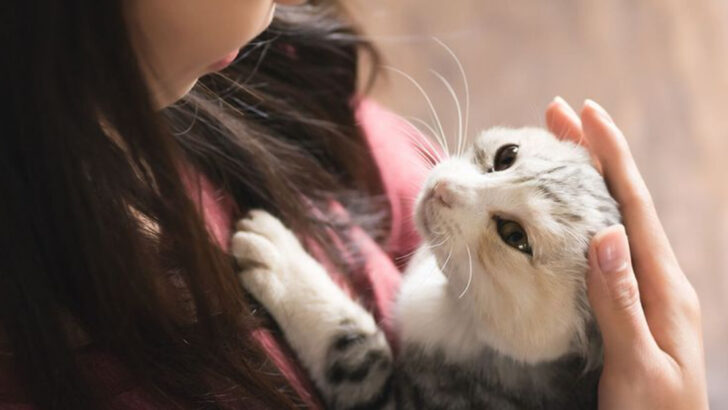Cats may be cute—but they can be spitefully cute.
If you’ve ever watched your cat knock a glass off the table right after you petted the dog, congratulations: you’ve seen jealousy in action. Feline envy doesn’t come with a loud tantrum or a green face. It sneaks in on quiet paws and strikes with a tail flick or a cold shoulder.
Maybe they’re suddenly glued to your lap.
Or ignoring you like you’ve betrayed them.
Or throwing a dramatic fit over your new houseplant.
It’s not just sass—it’s a message. And if you learn to read the signs, you’ll save your couch (and your sanity) from their silent revenge.
Unusual Clinginess
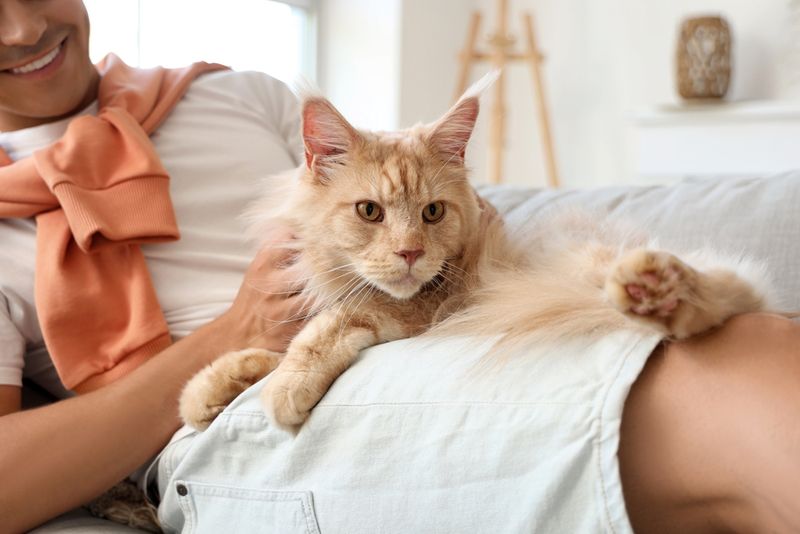
Have you ever noticed your cat suddenly becoming more clingy, sticking to you like a shadow? This behavior can be a sign of jealousy. Perhaps there’s a new pet or baby in the family, and your cat feels left out. When your independent feline starts acting like your second skin, it’s their way of saying, “Don’t forget about me!”
To ease their mind, spend extra time playing with them. A few minutes of dedicated playtime can reassure them of their place in your heart. Remember, a little extra love can go a long way in keeping jealousy at bay.
Territorial Marking
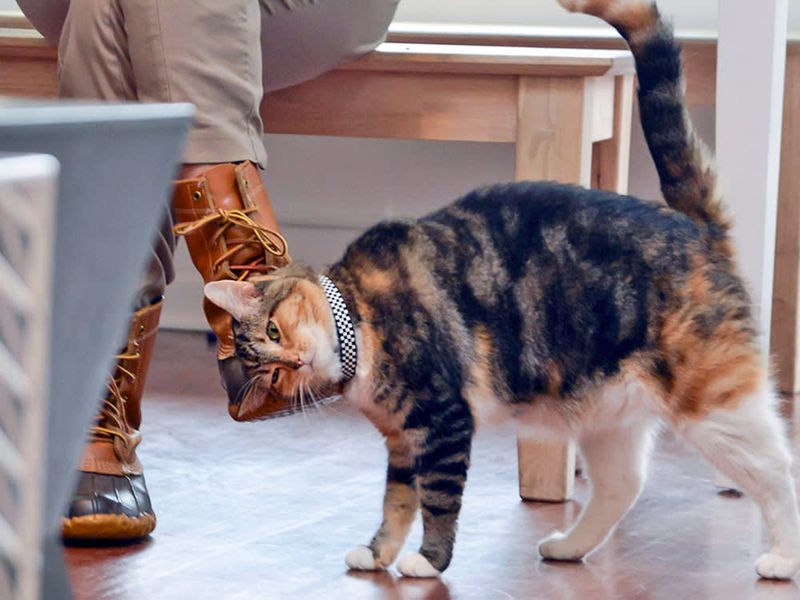
Your cat suddenly marking its territory more frequently might signal jealousy. Whether they’re rubbing their face on the furniture or spraying, these behaviors express a need to reclaim their perceived lost space.
It’s a feline’s way of saying, “This is mine!” To manage this, ensure your cat has its own space where they feel safe and secure. Consider adding cat trees or shelves to expand their territory vertically, which can help them feel more in control. Reinforcing boundaries with love and patience can significantly reduce these territorial tendencies.
Vocal Outbursts
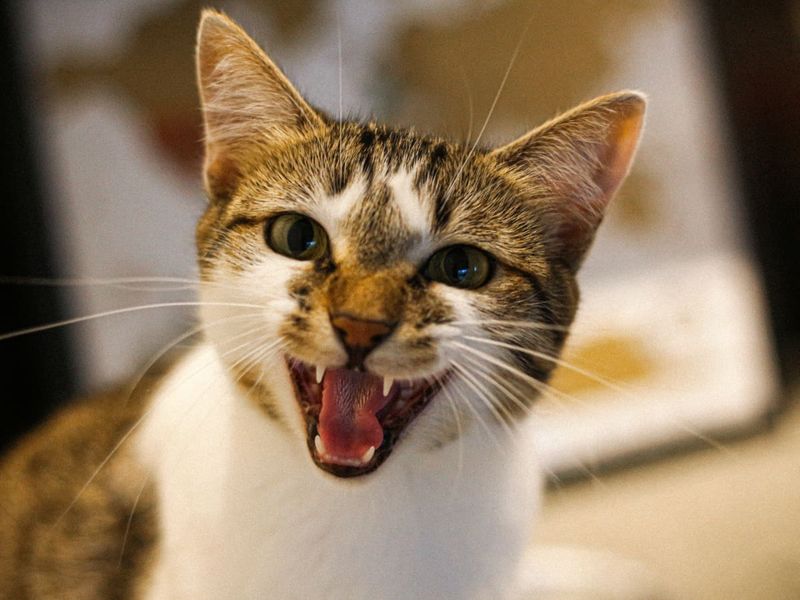
Cats are known for their quiet demeanors, so if your feline friend suddenly turns into a chatterbox, it might be a sign of jealousy. Perhaps you’ve been spending more time with someone else, and your cat feels neglected.
Increased vocalization can be their way of getting your attention, almost like a verbal nudge. Make sure to respond to these cues with gentle words and reassurance. Spend quality time with your cat to let them know they’re still your number one. A little acknowledgment can make a world of difference.
Hiding or Avoidance
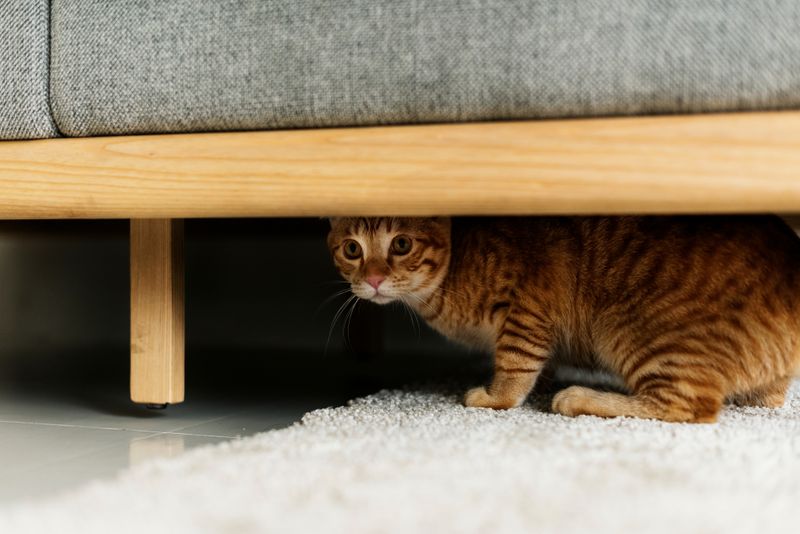
When a normally social cat starts hiding or avoiding interactions, it might be experiencing jealousy. Changes, like a new pet or partner, can trigger this behavior, making your cat feel sidelined.
By retreating to isolated spots, they’re expressing discomfort. Counteract this by ensuring your cat has safe, quiet places to retreat to where they won’t be disturbed. Encourage their confidence with treats and gentle reassurance, helping them feel secure despite changes in their environment.
Destructive Behavior
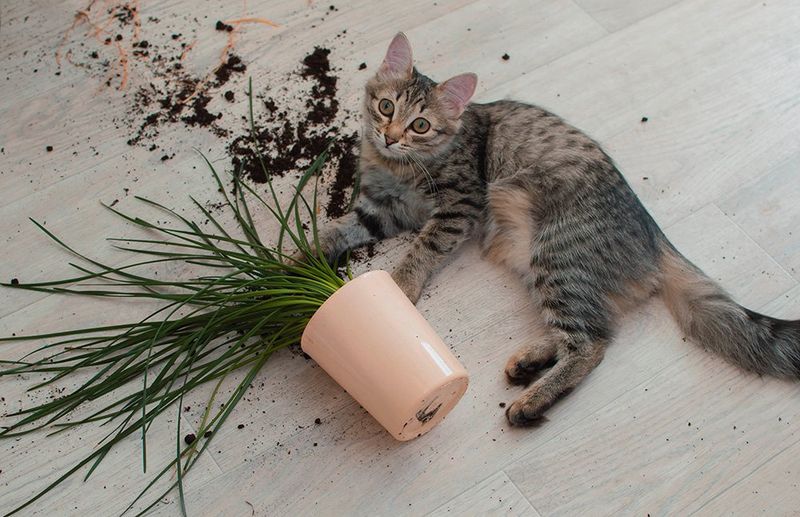
Is your cat suddenly shredding the couch or knocking things off the table? Destructive behavior can be a clear sign of jealousy. When cats feel threatened, they sometimes act out to grab your attention.
This might happen if they feel a new pet or person is taking up too much of your time. Equip your home with scratching posts and interactive toys to redirect their energy positively. By addressing their need for attention constructively, you can help alleviate their jealous tendencies.
Blocking Your Path
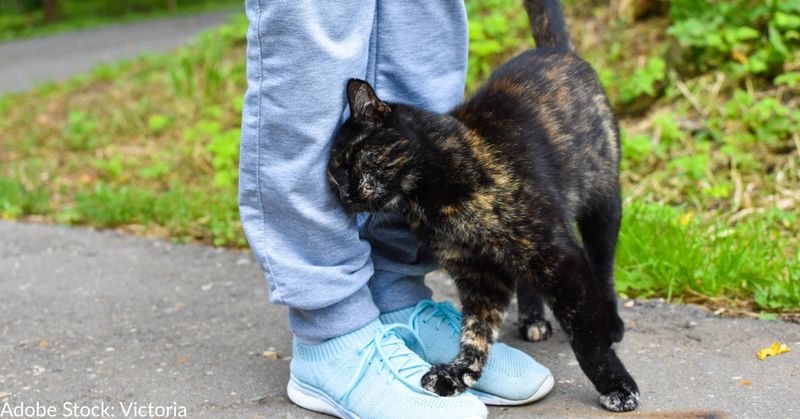
If your cat regularly sprawls across the hallway or sits in doorways, they might be vying for your attention out of jealousy. Blocking paths is their way of making you stop and notice them.
This playful obstruction can be their attempt to remind you of their presence. When this happens, take a moment to give them some love and attention. Even a few minutes of play can reassure them that they are loved and included in your life.
Disrupting Other Pets
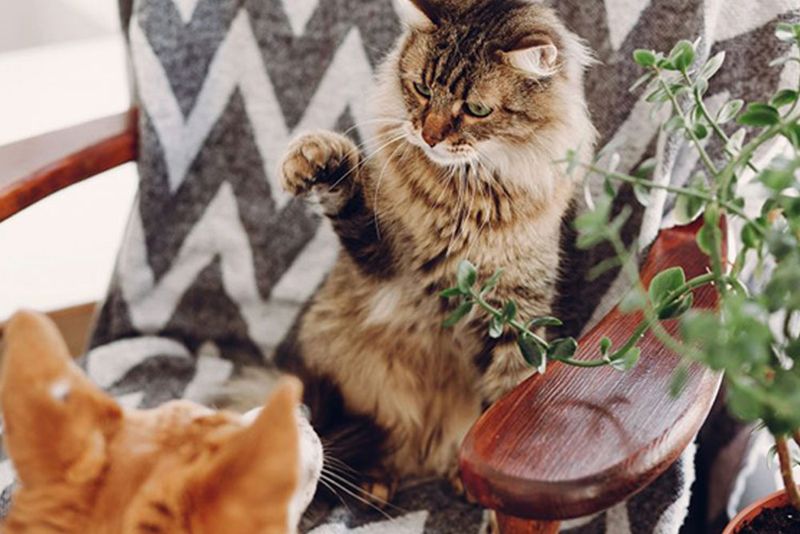
Have you caught your cat interrupting playtime between other pets? This behavior might be rooted in jealousy. Cats often disrupt others to reassert their importance.
By stepping into the fray, they’re saying, “Remember me? I’m here too!” To keep the peace, ensure your cat feels included by initiating play sessions that involve them. This inclusive approach can help reduce feelings of jealousy and foster harmony among your pets.
Change in Eating Habits
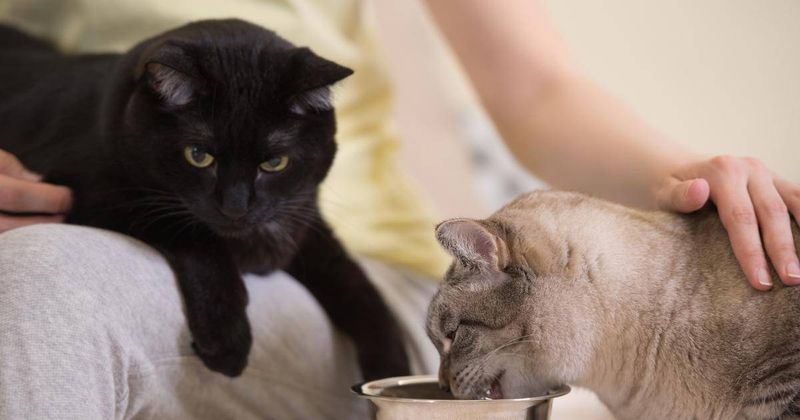
A sudden change in eating habits, whether overeating or loss of appetite, can indicate jealousy. If your cat feels sidelined by a new addition to the household, their eating patterns might reflect their emotional state.
Monitor their diet closely and ensure they have a quiet, private place to eat undisturbed. This can help them feel secure and maintain healthy eating habits. Regular mealtime can also comfort them, reinforcing routine and stability amidst changes.
Aggression Towards New Additions
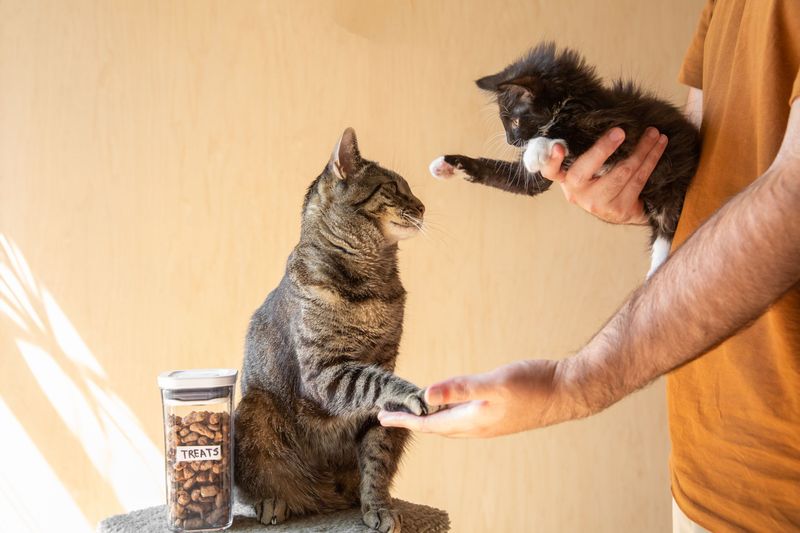
Introducing a new pet can sometimes trigger jealousy-induced aggression in your resident cat. If your cat hisses or swats at the new addition, it’s their way of expressing insecurity.
To ease tensions, introduce new pets gradually. Provide separate spaces and supervise initial interactions to ensure safety. With time, patience, and positive reinforcement, your cat may come to accept and even befriend the newcomer.
Excessive Grooming
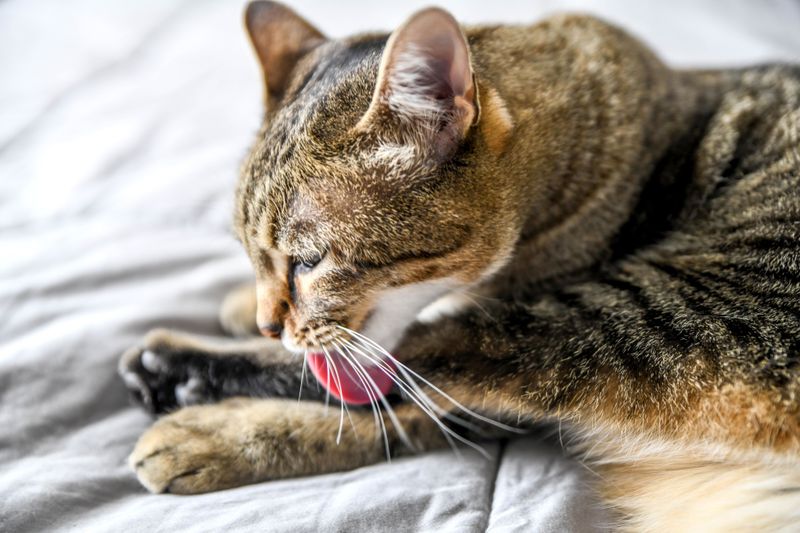
Excessive grooming can be a sign of stress or jealousy in cats. When changes occur, such as a new pet or partner, cats might groom excessively to self-soothe.
This behavior can lead to bald spots or skin issues. To help, maintain a consistent routine and spend quality time with your cat to reassure them of their importance. Keeping their environment stable and familiar can reduce stress and excessive grooming behaviors.
Ignoring Commands
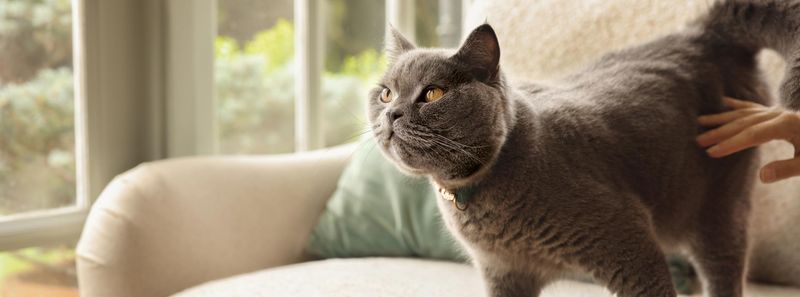
Cats who suddenly start ignoring commands or acting aloof might be displaying jealousy. This change in attitude can be their way of showing dissatisfaction with the attention you’re giving to others.
Rebuild your bond by engaging in activities your cat enjoys. Whether it’s a favorite toy or a cozy cuddle session, reinforcing positive interactions can help mend any rifts jealousy may have caused.
Mysterious Disappearances
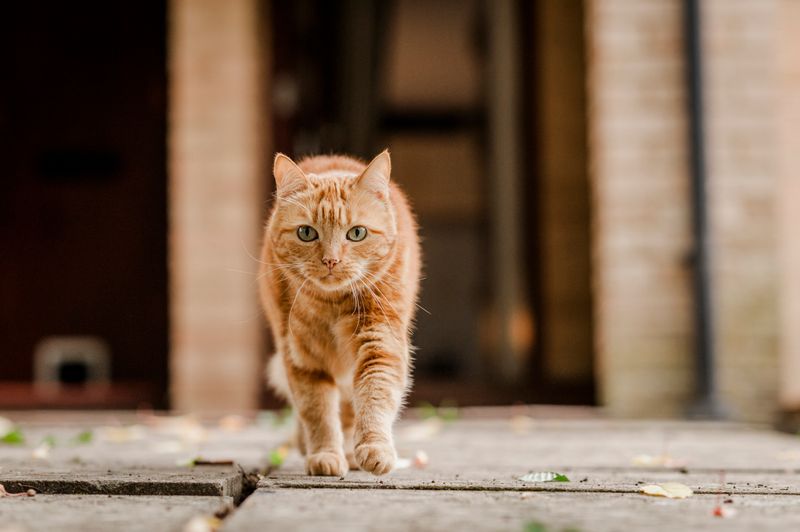
If your cat suddenly becomes elusive, disappearing for hours or even days, they might be feeling jealous. Absence is their way of coping with perceived displacement in your affections.
To draw them back, ensure their home environment is inviting and filled with comfort items they love. Spend time playing outside or in areas they frequent, demonstrating they haven’t been forgotten in your routine.
Increased Attention-seeking
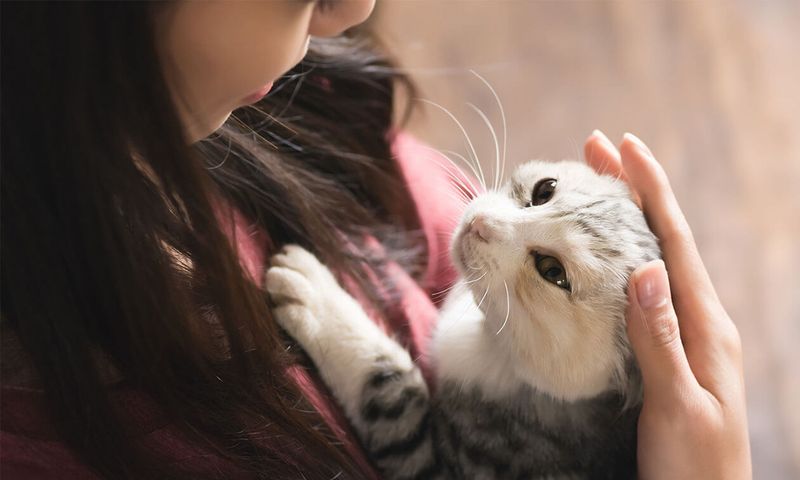
If your cat starts demanding more attention than usual, they might be feeling jealous. This behavior can manifest in different ways, from rubbing against your legs to butting their head against you.
These actions are cries for acknowledgment. Ensure your cat feels valued by dedicating quality time to them daily. A little extra love can help ease their jealous heart, reaffirming their special place in your family.
Unusual Litter Box Habits
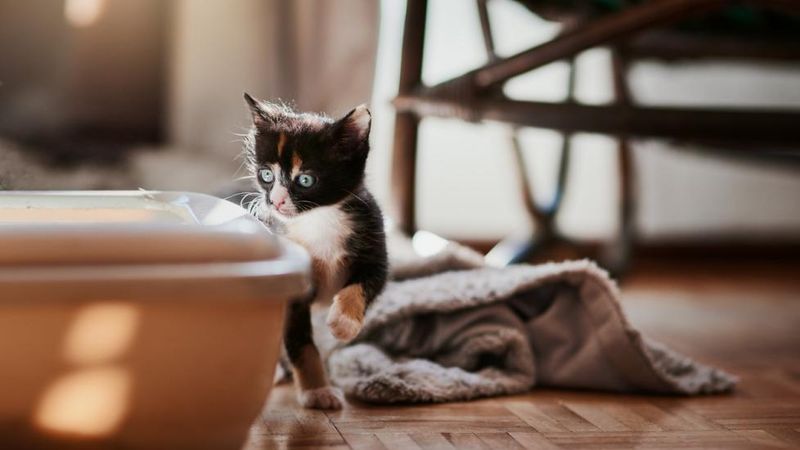
Changes in litter box habits, such as refusal to use the box or frequent accidents, can signal jealousy. If a new pet’s presence is unsettling, your cat might express their discontent through their bathroom behavior.
Ensure the litter box is clean and accessible, away from new pets. Reassure your cat with patience and care, affirming their place in your home. Consistent reassurance can help them return to their usual routine.

